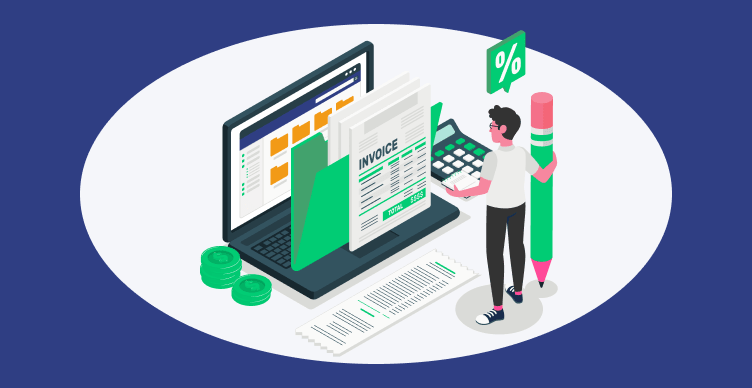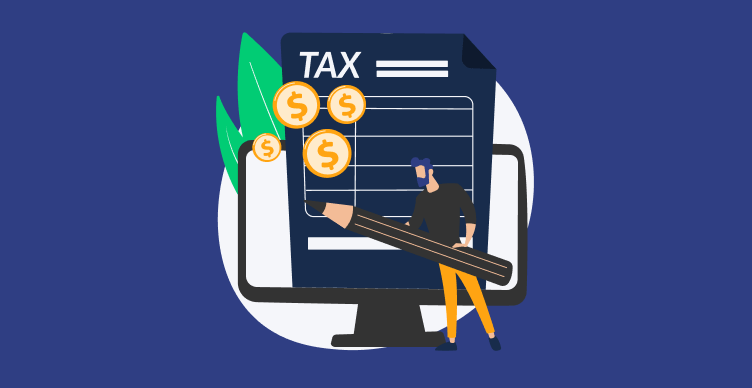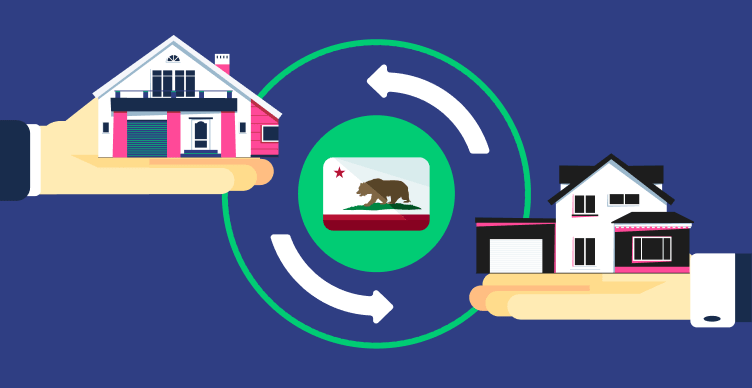Residential or commercial real estate can be a lucrative venture, but it can also turn out unfortunately if poor buying decisions are made. Sure, New Jersey realtors will have the knowledge and experience to make recommendations, but it helps you to understand the landscape of things before you make a property investment.
For one thing, homes are staying on the market longer, which means sellers are bringing prices down. If there were ever a time when you have all the market power in the world, this is it.
That being said, New Jersey home prices are not the only thing to think about. Thankfully, you have a series of insights below to help you understand trends, stats, and even how likely the market is to crash in NJ.
New Jersey Housing Market Trends
It's essential to set the stage to make the insights given easier to digest. The New Jersey housing market has several key terms and trends that you need to wrap your head around as a baseline before continuing.
Median Days on Market
During any specified time, this speaks to the median number of days that listings remain on the market in a location.
In New Jersey, for example, the figure is 40 days for 2022, which is an increase of 13, year-on-year.
Inventory
Inventory is one of the most important metrics for the New Jersey housing market. This is what will tell you the number of residential and commercial real estate units unsold. If you're trying to buy what will be you're next rental property, you'll want to get a feel for how promising the pool looks.
Unfortunately, supply has been historically low, and it continues to be that way.
Foreclosure Process
Unfortunately, some mortgages will not be able to make their payments as expected, leading to homes being foreclosed. This is also another area that can help you to understand the number of options that may be out there for investment property.
September 2022 alone saw almost 22,000 properties starting the foreclosure process. That's an increase of 113% from the previous year.
Mortgage Applications
As the name implies, this is the number of applications submitted for mortgages. Interestingly, 2022 saw a decline of 41% in applications.
Number of Homes Sold
During any given period, this will tell you how many properties changed hands. There's a trend of fewer homes being sold, and this is a countrywide trend, not a New Jersey thing. September 2022 saw about 1.3 million fewer sales than January 2022.
Median Home Prices
This metric takes all house prices from highest to lowest, and will use the middle value. February 2023 saw the median up 2.8% over the previous year.
Mortgage Rates
As you likely know, interest rates on mortgages can work in different ways. Sometimes it's fixed or variable, for example. The 2022 fixed national average 30-year figure was 6.1%. Year over year, there was a 3.2-point increase.
What Are the Factors Affecting the New Jersey Real Estate Market?
With the fundamental terms out of the way, now it's time to dive into the factors that influence the NJ housing market.
Economy
You can never dissociate a real estate market from the health of the economy and the same holds true in New Jersey. The specific factors that are of concern include manufacturing activity, GDP, inflation, employment ratios, etc.
Government Policies
Some of the government's policies will translate to either greater or less demand for real estate. This is especially true for those that speak to deductions, subsidies, tax credits, etc.
While you may not be able to tell the future, looking to these policies to try to make predictions on demand and supply is a good idea.
Interest Rates on Mortgages
It goes without saying that whatever mortgage rates are at a point in time will seriously impact the performance of the New Jersey housing market. If terms are unattractive, then borrowers will likely be more reserved.
The current state of interest rates has them at a record high that hasn't been seen in two decades. This means that many potential buyers ended up priced out of the market.
Demographics
The idea of demographics is grouping people based on similar attributes. Examples may be race, age, gender, income, etc. It's a great categorization tool to help understand the extent to which real estate is in demand.
As the demographics change, you'll find different short and long-term effects on the state of trends.
Will the Housing Market Crash?
If you're looking to get your slice of the pie in the New Jersey real estate market, the last thing you'd want to hear is that it crashed. While no one can see the future, the information available leads experts to believe that there's no need to worry about a crash any time soon.
However, there is the belief that the housing market will slow down, attributed to falling prices that, while unwanted, will not be anything like the Great Recession.
So, where does this belief stem from?
Higher Lending Standards Than Before
Borrowers of today need to meet pretty high standards to be able to secure the mortgages they want. For example, even those who may have decent credit could find the process difficult, considering most who actually get the mortgages have outstanding credit.
If this were almost two decades ago, almost anyone could get a loan since credit checks and downpayment requirements were not around. That's why liar loans could be a thing back then.
Reduction in Foreclosures
Homeowners now have a greater amount of equity in their homes. Make no mistake. As you can see from the trend section above, foreclosures are still happening, and will likely continue to happen. However, today's homeowners have much stronger balance sheets, meaning a crisis arising from foreclosures is unlikely.
Newer Buyers
If there's one thing that the limited supply of homes on the housing market shows, it's the extent to which demand is high, and this is true across several demographics. Millennials, for example, have now reached their buying years. All this also contributes to the low inventory being seen.
Low Inventory
Speaking of low inventory, scarcity is hard to deny. Looking back at August 2022, only a 3.2-month supply was available. That's why as a buyer, you may have to deal with bidding prices upward.
Challenges with the Newly Constructed Housing Supply
Pre-2007 new development levels were desirable. Today is a much different case. The process of buying land, getting regulatory approval, and completing projects to increase availability simply cannot happen as quickly as it would need to.
Housing Market Statistics
If you're the kind of investor who likes to see the numbers, then this section is for you. These national stats should help with your decision-making process:
- No state had a higher foreclosure rate than Illinois in August 2022. For every 1,926 units, there was one. Delaware took the second position with one in every 2,387 homes according to ATTOM.
- August also saw sales of existing homes fall to a 4.71 million annual adjusted rate. There was also a 23.8% decline year-on-year. This could be partially attributed to increasing prices since the median home price went up 8.4% over the previous year.
- From August 2021 to August 2022, there was a 7.7% home appreciation, based on information provided by NAR.
- September 2022 was the fourth consecutive month of pending home sale decline, with a 10.2% drop month over month and a 31% decline year over year.
- ATTOM Data Solutions pointed out that there were foreclosure listings, bank repossessions, scheduled auctions, or default notices on 31,501 US homes.
- August 2022 saw lenders repossessing 3,938 properties in the United States. These happened thrown completed foreclosures. ATTOM states that Illinois led the charge in this regard accounting for 493, with New York in second standing at 337.
- September, according to Freddie Mac, saw fixed-rate 30-year conventional mortgage commitments stand at 6.11%, which was an increase from 5.22% in August. 2021 saw an average commitment rate of 2.96%
- There was a clear and significant decline in the affordability of homes in Q2 2022. This aligns with monthly mortgage payment requirements on a single-family home increasing almost a third from Q1 and a half from the previous year. This speaks to mortgages with a 20% down payment.
Is There Currently a Housing Bubble?
First, what is a housing bubble? This speaks to a situation where there's a sharp increase in prices that comes with continuously increasing demand where there is a limited supply.
Of course, with more buyers joining the market, the demand will simply rise. Investors will also be on the scene looking for properties to snag.
All of this means that home prices get to unreasonable levels, meaning average buyers are priced out, as are even some who stand in the above-average bracket.
Looking at the existing situation, there has been a steady increase in house prices for the last two years. Of course, the inventory remains low, being at a 3.2 months supply.
This is accompanied by mortgage rates that have touched a record high. Therefore, you see a decline in home sale numbers, accounting for the all-time low of a year-on-year 22.5%.
With all these factors and the resulting lack of interest from homebuyers, many experts will tell you that there is currently a housing bubble in effect.
What Leads to a Housing Bubble?
You'll have a housing market bubble whenever prices get to a point that's not sustainable. Of course, the actual prices are controlled by the forces of demand and supply. However, there's more to the conversation including:
- Low mortgage rates
- Greater economic prosperity
- Easier access to credit
- More mortgage options
What Makes Housing Bubbles End?
A housing bubble ends when there is an increase in supply and a decrease in demand. Once there are consistent new developments, for example, supply will increase, and this ignores the falling demand. With the surplus of options, there will be fewer sales and lower prices. This situation is created by the following:
- Whenever there's a downtrend in the economy, demand will naturally decrease, considering people are less likely to have disposable income.
- Interest rates can make home purchasing an unaffordable venture for potentially interested buyers. Even homeowners find themselves in a difficult space. The result is foreclosures and defaults, which means the market supply goes up.
- Mortgage lenders in the NJ housing market may also make it more difficult for potential buyers to get a loan, meaning demand reduces. This also translates to a great supply and a drop in prices.
New Jersey Housing Market Predictions
It's no secret that the current situation is a quite concerning one. Mortgage rates are surging, home sales are falling, and both buyers and sellers are concerned. Year over year, there's a 14.7% decline in sales, coinciding with the rate of existing home selling being at its lowest level in a decade.
So, what do the experts think the housing market landscape will look like for 2023? Here are some of the predictions.
Inventory
Supply will likely stay low. If you think back to just before the 2008 market crash happened, inventory peaked at a 13-month supply. At the moment, there's barely enough for three months, which is about half the requirement.
Who's going to trade in an acceptable mortgage rate to then double it with another mortgage? There would be very special situations for that kind of outcome.
There are a few experts, however, who believe that as homes become more unaffordable with interest rates climbing, inventory will start on an upward path.
Home Sales
There are no two ways about it. With mortgage rates increasing, home sales in 2023 will be affected. The current expectation based on the existing trend is that the year will conclude with a 10% drop in sales.
This means you could see homes staying in inventory for longer and the median days on the market going up.
Mortgage Rates
Much of what has been said so far has to do with mortgage interest rates. Experts believe that the climbing will continue. This comes from geographical tension, a possible recession, and greater inflation.
The Fed is anticipated to increase the target Fed funds rate to between 175 and 200 points from the current level. Therefore, you'll end up with 8.5 and 7.7 being the mortgage rates for the 30-year and 15-year averages, respectively.
Affordability
The affordability of homes isn't expected to change too much. While home prices could fall continuously, the drop won't be enough to counter the higher interest rates.
Therefore, you'll see a situation where mortgage payments stay high, which reduces appeal to buyers since homes may appear less affordable.
Be that as it may, there's an extent to which hope is being held out that inflationary pressure will ease, allowing the mortgage rates to go on the decline, which would mean buyers wouldn't feel as pressured as they do now.
Home Prices
Some experts don't think that home prices are going to be dropping since the inventory problem is still a very real one.
This sentiment isn't shared by all of them though, as others believe that sellers will be lowering their prices, thanks to higher interest rates.
Unaffordability is expected to be the driving force for home values to go down anywhere between 5% and 10% since the Fed will likely aim to use an increase in mortgage rates to gain control over inflation.
The Next Five Years
Mortgage rates are expected to rise throughout 2023 but fall to 5.5% - 6% within two years, according to an account from the NAR Chief Economist. There's also an expectation for a 15% to 25% increase in home prices. That means there could be a situation where it becomes a buyers' market.
Many sellers are hoping for a market turnaround, and you could even say that they're waiting on it. The NAR Chief Economist expects a balanced market, meaning that neither the seller nor buyer would be able to dominate.
The Bottom Line
There's a lot to unpack in the NJ real estate market. The onset of the pandemic caused it to heat up fairly quickly, but thankfully, there is a cooldown effect happening. Those who were hoping for prices to fall will likely get their wish, but don't expect it to be comparable to the Great Recession if you are one of them.
If you're thinking of buying now, think of what the low inventory, inflation, interest, and the other factors in the mix mean for you. Additionally, pay attention to the expectations of the experts. You may find that there's a more favorable situation for your investment property interests down the line.
Frequently Asked Questions
Why Do Home Prices in New Jersey's Real Estate Market Fall?
Home prices fall for a variety of reasons, but some have a greater impact than others. One of the biggest is the constantly rising interest rates. This will automatically put a damper on affordability, killing demand, and leading to a fall in prices.
There's also the economic health side of things. In a recession, for example, there's inflation, more unemployment, etc., which means disposable income suffers. Therefore, demand for housing falls, leading to prices coming down.
Will the New Jersey Real Estate Market Crash?
The current indicators leave experts to believe that the NJ housing market will slow down quite a bit. However, there is no belief that it will crash since there is no foreclosure crisis concern, a low inventory, stricter lending standards, etc.
Is the Falling Real Estate Market Value Going to Continue?
Only time will tell, but the experts expect that if mortgage rates keep up their current trend and houses continue to stay in inventory, the market value will progressively decline.













































































































.svg)
























